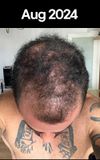Diseases of the Skin: Drug Ill Effects on the Skin
January 1974
in “
The BMJ
”

TLDR All medications can cause skin rashes, often without a clear cause, and better tests are needed to identify these drug-related skin issues.
The document from 1974 discusses the adverse effects of drugs on the skin, highlighting that all systemically administered medications can cause rashes, which are the most common drug-related complication. The mechanisms behind these rashes are mostly unclear, and allergies are rarely proven. The document calls for a simple and rapid diagnostic test to differentiate drug-induced rashes from other causes. It lists high-risk drugs such as antibiotics, sulphonamides, and barbiturates, and describes various drug-induced skin reactions, including pigmentary disorders and alopecia. The document also details specific conditions like toxic erythema, erythema multiforme, and drug-induced lupus erythematosus, noting that some conditions, like the toxic erythema of ampicillin, are drug-specific. It acknowledges the role of genetic susceptibility and drug interactions in the development of these rashes and emphasizes the need for more knowledge to confidently diagnose drug-induced rashes, as they are often too readily attributed to drugs without sufficient evidence.





